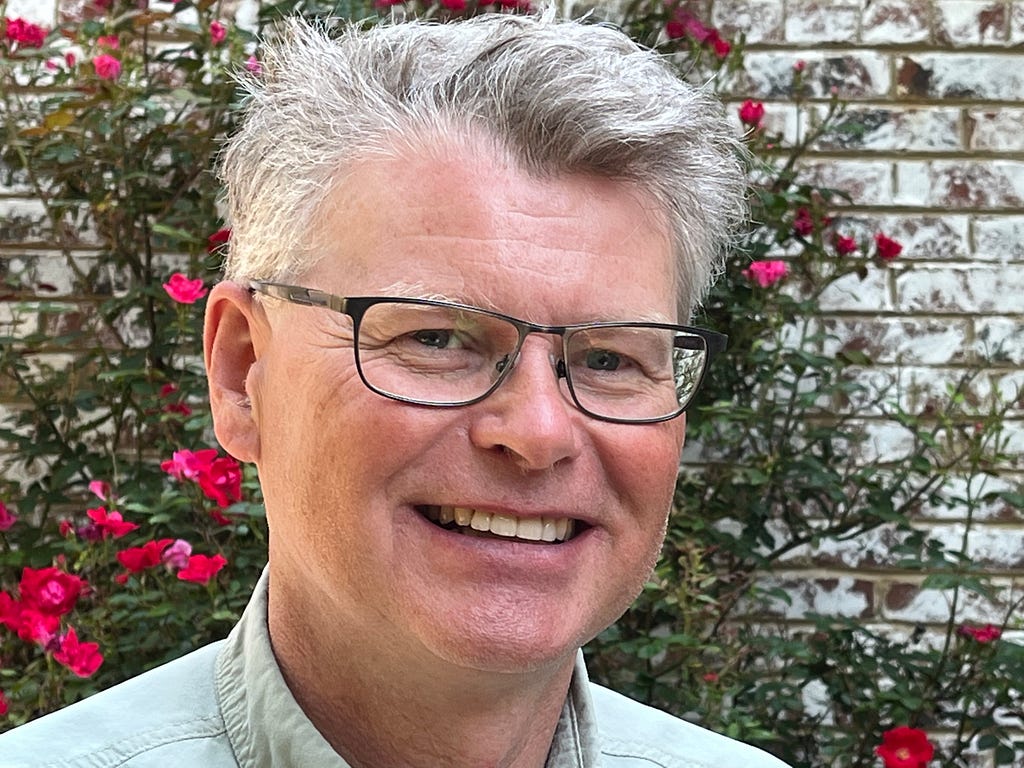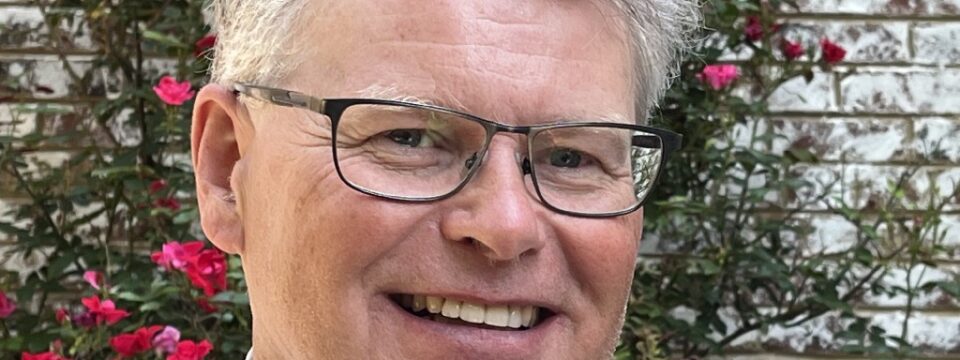Unstoppable: How Gregory Maassen Has Redefined Success While Navigating Society With Peripheral Neuropathy

Physical limitations and mental well-being are closely related, and the medical profession often poorly understands this connection. Depression and anxiety are often associated with physical disabilities and deserve equal, if not more attention, from medical professionals.
As a part of our “Unstoppable” series, I had the pleasure of interviewing Gregory Maassen Dr. Gregory F. Maassen.
Dr. Gregory F. Maassen is an Executive Director with over 23 years of global experience, including senior management experience with the IFC/World Bank, and USAID programs in Armenia, Southern Africa (15 countries), Afghanistan, Russia, Iraq, Macedonia, and Jordan. His technical areas of expertise include economic restructuring, land reform, agricultural value chains, regional trade facilitation, energy reform, and community-based development.
He has also taught at universities in Afghanistan, the Netherlands, North Macedonia, and Indonesia. Dr. Maassen has a Ph.D. in Business Administration and was a Fulbright scholar.
‘I am e-biking 3,400+ miles across America for the Foundation for Peripheral Neuropathy.’
Thank you so much for doing this with us! It is really an honor. Our readers would love to get to know you a bit better. Can you share your “backstory” with us?
I was born in the Netherlands and immigrated to the United States in 2019 after a long career as an executive director of USAID programs around the world. I became an American citizen in 2022. My career started with the World Bank while I was finalizing my Ph.D. in Business Administration at Erasmus University in the Netherlands. I had the privilege of studying under the supervision of Floris Maljers, former CEO of Unilever and chairman of boards of directors of listed corporations, including KLM-Air France and Philips Electronics. Shortly after my Fulbright scholarship, I worked with the World Bank in Armenia, where I helped reform the country’s capital markets with modern corporate governance standards and legislation. This experience brought me to Russia with the World Bank and later to North Macedonia where I started a career with Deloitte Consulting, managing USAID programs. I have managed large USAID economic development programs in Afghanistan, Iraq, Jordan, and Southern Africa focusing on economic development, agriculture, and trade facilitation.
I met my American wife, Janet Katz, in Armenia in 1998 and we were married in 2003. Due to my illness, we returned to the United States in 2019, when I was granted a green card.
Do you feel comfortable sharing with us the story surrounding how you became disabled or became ill? What mental shift did you make to not let that “stop you”?
While I was based in South Africa managing a regional USAID trade program, I enjoyed wildlife hiking on the weekends, and I even wrote a hiking book. During one of the hikes, I unknowingly walked through a nest of ticks, and although at the time this seemed like more of an annoyance than anything else, this proved to be a life-changing incident. Although we did not know it at the time, it appears I was exposed to a pathogen of unknown origin that made me critically ill in a very short period of time.
Unable to find a diagnosis in South Africa or the Netherlands, I was fortunate to meet Dr. Ahmet Hoke of Johns Hopkins University Medical Center in Baltimore who diagnosed me with a condition called post-infectious small fiber neuropathy. This illness resulted in a constant burning sensation around my body and an array of other debilitating symptoms which left me bedridden for months. Skin biopsies indicated nerve damage as well.
As an executive, I was used to problem-solving, but I was unsure and unsettled about how to even begin to address my condition. However, I decided to approach my illness as if I were managing another international development project: “Project Maassen Recovery” and committed myself to doing whatever was required to improve my life. As part of the project, I decided to seek the insight and expertise of others. As a “doer” with a fierce sense of independence and self-sufficiency, this was not necessarily easy.
This shift in thinking was essential to my recovery. Instead of solely waiting for answers and solutions from the medical profession, I took control of a difficult situation. Instead of giving up and seeing myself as a victim, I forced myself to think in terms of hope and solutions, combating the severe depression and anxiety that came with the neuropathy. For the first time in my life, I sought active help from others to overcome a medical and psychological battle and realized that one cannot succeed alone.
Can you tell our readers about the accomplishments you have been able to make despite your disability or illness?
I was placed on a cocktail of medicines to combat the pain, anxiety, and depression that came with my condition. Dr. Hoke of Johns Hopkins and my internist Dr. Gary Koritzinsky, also suggested that I initiate an exercise routine to rebuild my strength and battle the neuropathy. Initially, I was too ill to even think about exercising. I remember saying: “Are you out of your mind? How one can possibly think of exercising if one can hardly get out of bed”, but I found the power to e-bike (electric bike) in my new hometown, Washington, DC. This led to a years-long recovery program where I graduated from a bed-ridden patient to an active community organizer and social entrepreneur.
I also decided to go back to school as part of my recovery program. I received a merit award when I enrolled in a MA for documentary and filmmaking at American University’s School of Communications in Washington, DC and I am working on several documentaries.
What advice would you give to other people who have disabilities or limitations?
Don’t give up. Plan, stop searching Dr. Google for answers and seek support. Acknowledge that mental challenges like depression and anxiety often come with physical illness. Seek advice and assemble a team of medical experts under the supervision of an internist. Be realistic. A recovery plan is a full-time long-term endeavor. It takes discipline to focus on your physical and mental well-being. You may not recover immediately, so manage your expectations. Every good moment, hour, day, or minute is a great success, and build on these moments. Consider e-biking. It is a low-impact form of exercising that may open a world of new possibilities.
None of us are able to achieve success without some help along the way. Is there a particular person who you are grateful towards who helped get you to where you are?
I would not have been able to succeed throughout my career without my wife, Janet, who supported me while I was bed-ridden and critically ill. A severe illness not only affects the patient but close family and friends are often severely impacted as well. Janet’s support has always been remarkable, and she kept me alive when I was experiencing the worst symptoms. My internist Dr. Koritzinsky directed me to Dr. Hoke’s Neurology Department. These fine medical professionals provided hope and a path toward success. They understand the powerful mind-body connection and the importance of addressing mental and physical limitations that come with a serious illness.
How have you used your success to bring goodness to the world?
I am the founder of E-bike Lovers, an inclusive community organization in Washington, DC that shares my positive experience with electric bicycles. With over 550 e-bikers, the organization has grown rapidly and provides weekly free self-guided cycling tours. We are filming a feature-length documentary about my experience and have designed a new trans-continental cycling route along the historic Lincoln Highway, running from Washington, DC to San Francisco.
I am also co-founder of Kalahari Truffles, a sustainable harvester of truffles from the Kalahari Desert in Botswana. Together with two co-founders, we are in the process of building a leading culinary social enterprise based in South Africa and Botswana that will help provide employment to village harvesters in remote parts of the Kalahari desert.
Can you share “5 things I wish people understood or knew about people with physical limitations” and why.
- Physical limitations and mental well-being are closely related, and the medical profession often poorly understands this connection. Depression and anxiety are often associated with physical disabilities and deserve equal, if not more attention, from medical professionals.
- Exercising doesn’t have to be torture, and anyone with a physical limitation can find an appropriate form of physical activity under the supervision of a medical specialist. I am using an e-bike to run errands, and it provides an excellent low-impact form of exercise. E-biking is a good way of exercising. It is a wonderful way to stay fit, both mentally and physically.
- Although people with a chronic illness often suffer in silence, they deserve to be heard with greater resources for research and education to combat illnesses. Although many chronic illnesses are not life-threatening, they seriously erode one’s quality of life and desire to live.
- People with physical limitations are productive members of society who deserve the necessary accommodations to excel in life. Show compassion by providing opportunities that enrich one’s life and try to understand what it takes to battle an illness daily if you are lucky enough to be free of illness.
- Don’t give up — it is a cliché of course but whether you start with a physical limitation, or a physical limitation befalls you, reach deep and find a way — it’s not easy but there is so much to live for.
Can you please give us your favorite “Life Lesson Quote”?
“The best cure for the body is a quiet mind.”
– Napoleon Bonaparte.
We are very blessed that some of the biggest names in Business, VC funding, Sports, and Entertainment read this column. Is there a person in the world, or in the US whom you would love to have a private breakfast or lunch with, and why? He or she might just see this 🙂
I want to meet Chris Anderson, the curator of TED Talks, a non-profit organization that inspires millions of people worldwide with accessible, innovative, and engaging speeches. Ted Talks inspired me to establish ebikelovers.com, a community organization that promotes e-bike technology for physical and mental well-being.
Thank you so much for joining us. This was very inspirational.
Unstoppable: How Gregory Maassen Has Redefined Success While Navigating Society With Peripheral… was originally published in Authority Magazine on Medium, where people are continuing the conversation by highlighting and responding to this story.
